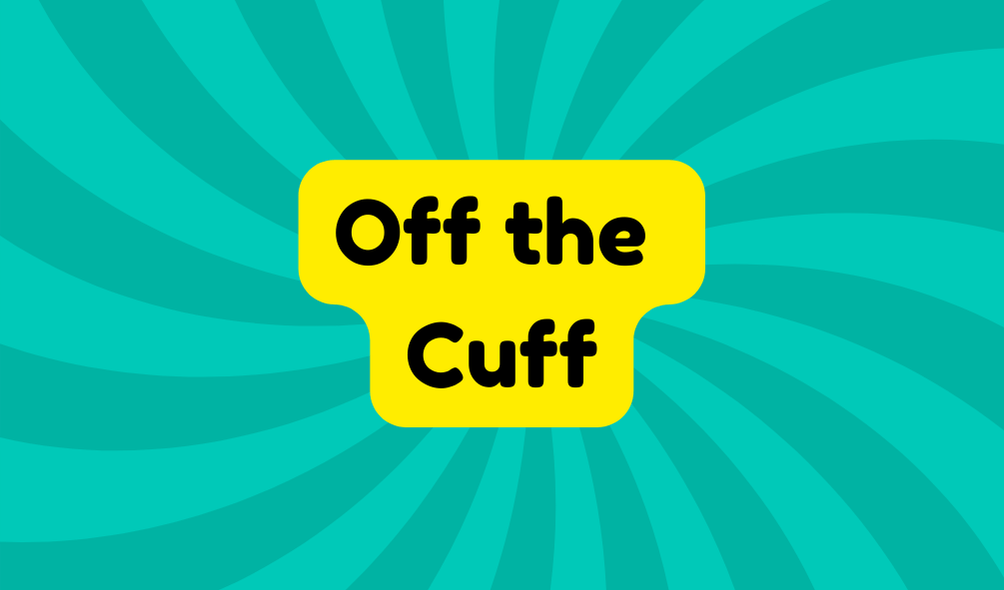"Off the cuff" describes spontaneous speech or actions without any prior planning. The term likely comes from a time when speakers would jot notes on their shirt cuffs for quick reference. This informal style of communicating can lead to insightful moments but may also result in careless remarks or misinformation. While it allows for genuine connections, caution is essential as it may divert discussions from key topics. For further exploration, consider examining its implications in different contexts.
Synonyms
When considering the concept of speaking spontaneously, various synonyms come into play that reflect a similar sense of unpreparedness. These terms emphasize the idea of unfiltered communication, often resulting in spontaneous expressions that can be both insightful and careless. Understanding these synonyms helps individuals grasp the nuances of unscripted dialogue.
- Extempore
- Ad-libbed
- Offhand
- Candid
- Impromptu
Each term carries its own connotation, yet they all point towards a moment of authenticity. Recognizing these variations allows for a deeper evaluation of the significance embedded in casual, unguarded remarks.
Example of Sentences
Making off-the-cuff remarks can lead to a mix of insightful and problematic outcomes. These spontaneous comments often arise in casual dialogue and can reveal a speaker's true thoughts but may also misfire. Consider the impact of such comments:
- They can foster genuine connections when shared.
- Unexpectedly humorous moments may emerge.
- Important issues might be overshadowed by rambling.
- Misinformation can spread quickly in casual settings.
- Public figures risk backlash from unguarded statements.
In a world that values innovation and transparency, understanding the implications of these unfiltered remarks is essential, informing both personal and public discourse.
Origin
The origin of the phrase "off the cuff" can be traced back to its first known use in 1936, providing an interesting glimpse into how language evolves over time. One explanation suggests that speakers wrote last-minute cuff notes during gatherings to assist with spontaneous speaking. Such notes, hastily penned on shirt cuffs, offered guidance in the moment. Another perspective links the phrase to directors who scribbled reminders on their sleeves to recall lines for actors. Though both interpretations highlight the informal nature of the phrase, they also reveal the necessity of preparedness, even in moments marked by spontaneity.
Collocations
Collocations play a significant role in understanding the phrase "off the cuff" and its usage in everyday language. Understanding associated terms can enhance comprehension, revealing the nuances of spontaneous speaking. The following terms highlight the relational dynamics of this phrase:
- Offhand comments
- Impromptu discussions
- Unscripted exchanges
- Candid remarks
- Ad-lib responses
How to Use in Everyday Language
Using the phrase "off the cuff" in everyday language can enrich conversations, but it also carries certain risks. When used in casual conversation, it can lead to unexpected or even controversial responses. Individuals should be mindful of context and audience to avoid misunderstandings.
| Pros | Cons |
|---|---|
| Enhances spontaneity | May cause offense |
| Encourages authentic dialogue | Risks spreading misinformation |
| Shows confidence | Potentially awkward situations |
| Engages listeners effectively | Can distract from main points |
Why Is It Still Relevant Today?
While many may find the off-the-cuff speaking style invigorating, its relevance today raises important questions about authenticity and responsibility. This form of communication reflects cultural significance, revealing attitudes toward spontaneity and engagement. However, in an age where misinformation spreads rapidly, off-the-cuff remarks can lead to misunderstandings or misinterpretations. As communication styles evolve, the balance between candidness and intentionality becomes essential. Public figures risk tarnishing their credibility with unguarded comments, while audiences crave genuine, reliable information. Consequently, the challenge lies in maneuvering this fine line, encouraging thoughtful discourse without suppressing the human element that off-the-cuff speaking embodies.







